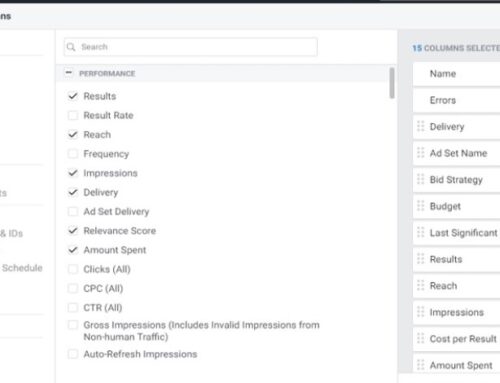A common problem of advertising budgets
Why are so many PPC campaigns not performing as well as supposed to? Let’s give the benefit of the doubt that this advertiser has a reasonably well-managed account. This could be you right now. The campaigns are properly divided, the ad groups are thematically related, the keywords has volume and is driving traffic to your ads. Ad extensions, bidding, tracking all installed properly. Green light!
“GO,GO,GO!” – you say.
So little clicks, no conversions
The skies are clear and the sun is shining down, but still so little clicks and conversions after a while. You look around and find nothing amiss. Could it be that Google is just playing tricks on you? Selling you short on the stick? (Just kidding, it can’t)
You look at your account daily budget and find out it is $50. That’s $1500 per month. Alright, reasonable amount for a small local business.
Spread among 5 campaigns.
OH WAIT!
There you have your answer. A $50 daily budget may be fine for a really small business, but it is not fine when spread across many campaigns. You should not even be thinking of running Display Network, or having more than 2 search campaigns.
The answer is because your advertising budget is too low for Google to show any results. Moreover, it will take months to even accumulate reasonable data for optimization work.
Meet confused Sally
Sally runs a small nail salon business. It has been operating for 6 months. Fairly new. Hence, a advertising budget. She hopes to drive customers to her storefront and also tracks phone calls.
But Sally is ambitious. (here’s the problem)
She provides manicure for the hands and the feet. There are 5 types of manicure she does, ranging from different prices. Then she also provides eyebrow extension, eyebrow embroidery. She also has a spa area where her customers get to relax and unwind. She has waxing services too.
She spreads her $50 daily budget across all these campaigns, each bidding different keywords for each of the services.
What is happening to her business?
I will tell you what will happen. First, there will no results. Second, all her ads will be underserved due to lack of budget. Third, she has probably wasted all her advertising spend!
What will we recommend Sally to do?
1) Significantly increase her daily budget to accommodate for multiple campaigns.
You cannot have a small budget and run many campaigns. There is not enough money to bring in customers. Do you hire 1 salesman and have him sell 6 different products in a day? Advertising is salesmanship. What you won’t do with a salesman, you don’t do in advertising.
2) Delete all her campaigns and leave 1, pour all the budget into it.
There is power in concentration. Let that be known. Deleting all her campaigns to forces Google to focus on one. And that one will drive the necessary clicks and enough data to do optimization work. This also means she cannot advertise all her services, she has to choose 1 or 2. To concentrate means to sacrifice. She will have to keep all other campaigns paused or deleted until an increase of budget allows her to run it.
If you chase 2 rabbits you will not catch either one
We all heard of this proverb. The hunter that chases two rabbits catches none. If there is not enough fuel in the tank, no matter how good your car is built, it simply won’t go far. There are many options for the average advertiser with Google Ads, heck add in social media and all the marketing channels available. It is easy to turn it into a clown fiesta with no results to show.
We would advise the advertiser to focus on the one that will bring most results. Don’t ever catch yourself spread too thin.
Too weak, prone to attack
Campaigns that are under-budgeted cannot compete with competitors. It is always advisable to start small, take small victories and steamroll into big ones. The difference between starting small is that you have momentum behind you when approaching big obstacles. If you start with the big obstacles (aka trying to achieve too much, too soon) you will inevitably fall flat on your face.
There is power when a business rides momentum, do not forget! There is confidence, with added force, and your competitors will have to give way.
Foolishness in budgeting
Campaign budgeting should always be backed by common sense. We should plan out a budget just like any other budgets, your holiday budget, your family budget, your monthly food budget. First find out what your advertising goals are. All campaigns are backed by a definite goal to be achieved, and a proper budget to fuel its attainment.
How many calls? How many leads? How many sales?
It is exactly the same as how you run a team of salesmen. You ensure daily, weekly and monthly goals are met by the salesmen.
If you do research and found out that your industry average spends around $3000 a month on Google ads. If you spend $5000, you have more room to maneuver with creating new campaigns and testing various methods than if you would spend $500.
Spending less is fine as long as you are not foolish about your goals.
Reduce the campaigns, reduce the keywords, reduce the ad groups. Still test your ads, but narrow down your audience and reach.
There is power in narrowing and getting initial small wins. And when your budget allows you to, expand your advertising and claim your victories.
Who said advertising has to be a risky venture?
In Summary
If a flight ticket to Hawaii costs $1000, paying $750 is not going to get you there. The worst case is that the pilot may bring you 3-quarters of the destination and drop you into the sea. So in campaign budgeting, it is important to be reasonable with your targets.
A smaller budget must cut down its scope and achieve victory in a small scale, initially. A bigger budget means you get more campaigns and wider advertising reach of your business.





